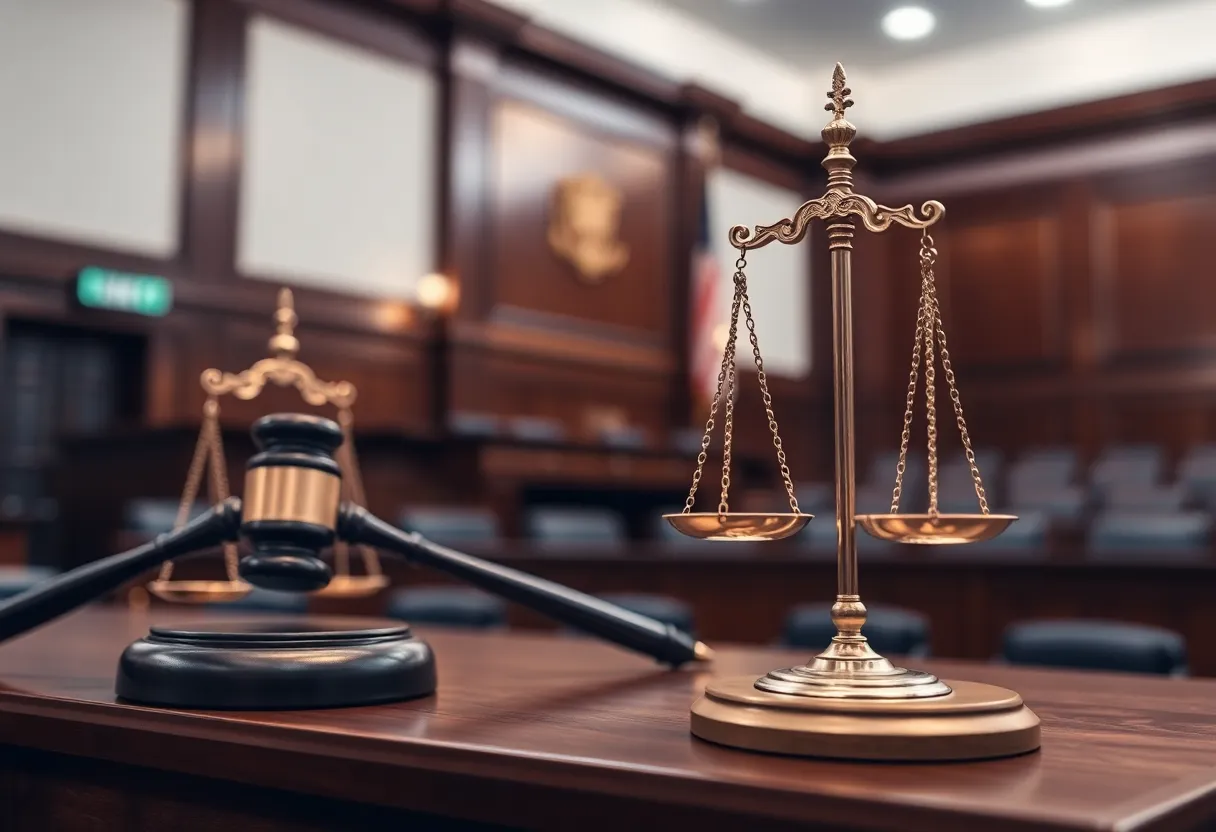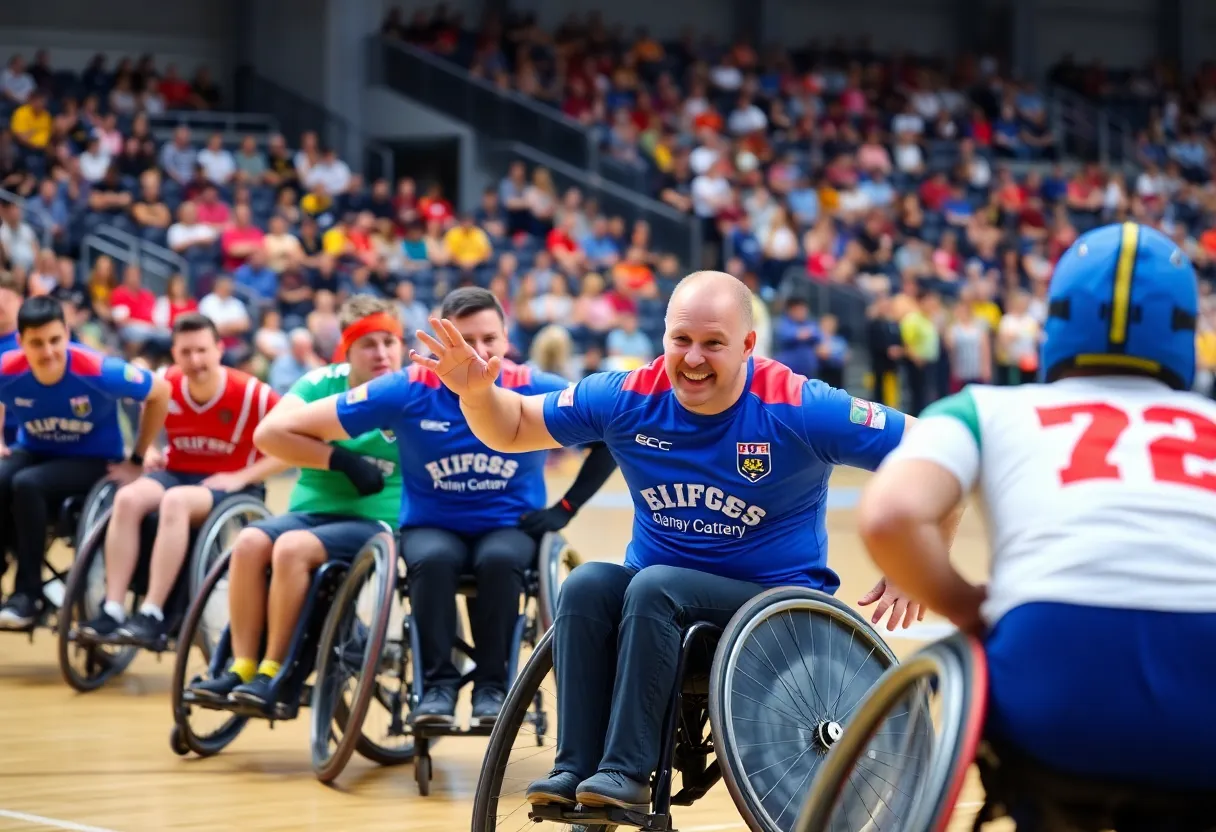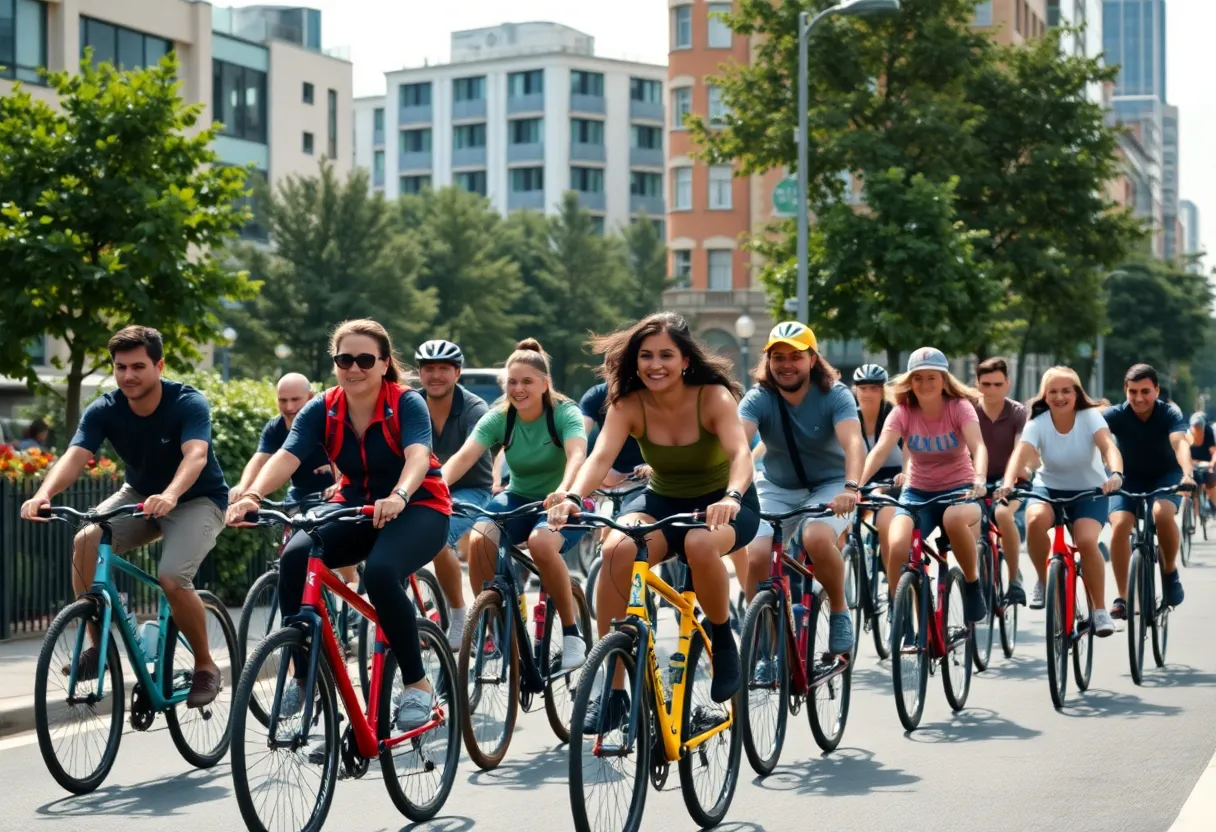Louisville, October 7, 2025
A federal judge in Louisville has refused to grant a delay in the prison sentence of former detective Kelly Goodlett, who was convicted for falsifying warrants in the Breonna Taylor case. Goodlett is set to serve 3 to 5 years beginning on November 1. The ruling emphasizes the need for accountability in the wake of civil rights violations and maintains a timely path for justice in high-profile cases stemming from Taylor’s death during a botched raid.
Louisville Judge Denies Delay in Prison Sentence for Former Detective in Breonna Taylor Case
In Louisville, a federal judge has denied a request from former detective Kelly Goodlett to postpone her upcoming prison sentence related to the 2020 Breonna Taylor raid. This decision ensures that Goodlett, who was convicted of falsifying warrants, will begin serving her term of 3 to 5 years on November 1 as originally scheduled.
The ruling came from Judge Rebecca Grady Jennings, who rejected arguments from Goodlett’s attorneys that more time was needed for preparation. Prosecutors have highlighted the importance of this case in holding individuals accountable for civil rights violations, emphasizing the need for timely justice in high-profile incidents.
Goodlett’s conviction stems from her role in the events surrounding the raid on Breonna Taylor’s apartment, which drew widespread attention and sparked protests across the country. The incident involved law enforcement actions that led to Taylor’s death, raising significant concerns about police procedures and accountability.
According to court details, Goodlett was found guilty of conspiracy to falsify a search warrant, a charge that prosecutors linked directly to the flawed execution of the raid. This case represents one of the key outcomes from investigations into the events of March 2020, when Taylor, a 26-year-old emergency medical technician, was killed during a no-knock warrant operation.
The denial of the delay request underscores the ongoing efforts to address civil rights issues in Louisville and beyond. Legal experts note that such cases play a crucial role in reforming police practices and ensuring that those involved in misconduct face consequences. Goodlett’s sentence is part of a broader wave of accountability measures following the national outcry over Taylor’s death.
Background on the case reveals that the Breonna Taylor raid was part of a larger investigation into suspected drug activities. However, the operation’s planning and execution came under intense scrutiny after Taylor was fatally shot by officers. This event not only led to criminal charges against several individuals but also fueled widespread calls for police reform, including changes to no-knock warrant policies.
In the aftermath, Louisville saw significant community responses, including protests and policy changes at the local level. The case against Goodlett specifically focused on her actions in preparing the warrant, which authorities alleged contained false information. Prosecutors argued that these falsifications contributed to the tragic outcome, making her conviction a pivotal moment in the pursuit of justice.
The decision by Judge Jennings to uphold the original timeline reflects a commitment to moving forward with sentencing without further delays. This approach aims to provide closure for Taylor’s family and the community while sending a message about the seriousness of civil rights violations. As the date for Goodlett’s imprisonment approaches, it highlights the ongoing ripple effects of the 2020 incident on law enforcement practices nationwide.
Further context shows that the Breonna Taylor case has influenced discussions on racial justice and policing reforms across the United States. In Louisville, local officials have implemented new training programs and oversight mechanisms in response to the event. Goodlett’s case is one of several related legal proceedings, demonstrating the complexity and long-term nature of seeking accountability in such matters.
Overall, this development in Louisville serves as a reminder of the importance of transparency and ethical conduct in law enforcement. As the community continues to heal and advocate for change, cases like this one play a critical role in shaping future policies and practices.
The ruling also brings attention to the challenges faced by individuals involved in high-profile cases, including the impact on their personal and professional lives. While Goodlett’s attorneys sought additional time, the judge’s decision prioritized the need for swift justice, balancing individual rights with public interest.
In summary, the denial of Goodlett’s request marks a significant step in the legal aftermath of the Breonna Taylor raid, reinforcing efforts to uphold civil rights and maintain public trust in the justice system.
More details from the case files indicate that the falsification of warrants was not an isolated incident but part of procedural issues that have been examined in multiple reviews. These reviews have led to recommendations for improved oversight in warrant applications, aiming to prevent similar errors in the future. In Louisville, this has prompted collaborations between law enforcement and community leaders to enhance training and accountability measures.
The 3- to 5-year sentence for Goodlett aligns with federal guidelines for such offenses, reflecting the severity of conspiring to violate civil rights. Prosecutors have stated that this outcome is essential for deterring misconduct and promoting ethical standards within police departments. As the date of November 1 approaches, it serves as a milestone in the ongoing pursuit of justice for Breonna Taylor and her family.
This case continues to evolve, with potential appeals and related proceedings that could influence broader reforms. The focus remains on ensuring that lessons from the 2020 raid lead to meaningful changes in Louisville and other communities facing similar challenges.
FAQ
- Q1: What was the outcome of Kelly Goodlett’s request to delay her prison sentence?
A1: A federal judge in Louisville denied former detective Kelly Goodlett’s request to delay her prison sentence related to the Breonna Taylor raid. - Q2: What is Kelly Goodlett’s sentence?
A2: Goodlett, convicted of falsifying warrants, faces 3-5 years starting November 1. - Q3: Why did Goodlett’s attorneys argue for a delay?
A3: Her attorneys argued for more preparation time, but Judge Rebecca Grady Jennings upheld the timeline. - Q4: What is the background of the case?
A4: The case stems from the 2020 raid that sparked national protests, with prosecutors emphasizing accountability for civil rights violations. - Q5: What does this ruling signify?
A5: This ruling underscores ongoing justice efforts in the high-profile incident.
Key Features Chart
Below is a simple table outlining key features of the case:
| Feature | Details |
|---|---|
| Defendant | Kelly Goodlett |
| Conviction | Falsifying warrants |
| Sentence Length | 3-5 years |
| Start Date | November 1 |
| Related Event | Breonna Taylor raid in 2020 |
| Significance | Ongoing justice efforts for civil rights violations |
Deeper Dive: News & Info About This Topic
HERE Resources
Elizabethtown Man Charged in Road Rage Shooting
Fatal Apartment Fire Claims Life in Louisville’s Algonquin Neighborhood
Former Detective Sentenced to Prison in Breonna Taylor Case





